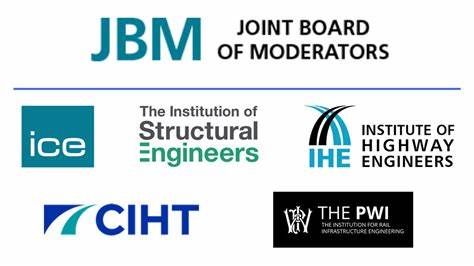Overview
This master’s course will teach you how to apply cutting-edge technology and tools such as machine learning and AI to solve a range of water and environmental engineering problems. Particular emphasis will be given to the challenges of climate change and to the introduction of modern techniques such as sustainability assessment, data analytics and machine learning. These will give you a range of sought-after skills and substantially increase your employability within the environmental engineering sector.
The programme of study has been designed with close reference to the United Nation’s 17 Sustainable Development Goals, with several modules focused directly on the impact of climate change. It’s an approach that matches both the Engineering Council’s AHEP4 accreditation requirements, and the position adopted by all the major Engineering professional bodies.
You’ll have access to our custom-designed technical facilities, and the latest industry standard engineering software packages are available for you to use in the purpose-built computer laboratories.
Through the Visiting Professors Scheme your learning is enhanced via a series of specialist lectures on industry practice. In addition, guest speakers from leading industrial partners provide a valuable insight into water engineering and you will also benefit from site visits to water treatment plants.
At the end their final year, engineering and maths students are invited to showcase their project work at Brunel Engineers +, an event that both celebrates their achievements and gives them the chance to network with industry figures and employers. This video shows some of the projects exhibited at the 2024 Brunel Engineers + event, with explanations by the students themselves.
This programme is accredited by the Joint Board of Moderators (JBM) comprising of the Institution of Civil Engineers, Institution of Structural Engineers, Institute of Highway Engineers, and the Chartered Institution of Highways and Transportation on behalf of the Engineering Council as meeting the requirements for Further Learning for a Chartered Engineer (CEng) for candidates who have already acquired a partial CEng accredited undergraduate first degree. See www.jbm.org.uk for further information. It is also accredited by the Chartered Institution of Water and Environmental Management (CIWEM).

You can explore our campus and facilities for yourself by taking our virtual tour.
Course content
You will study the taught modules in the first two terms and then spend four months working on your dissertation. The dissertation is an advanced piece of research and is assessed through a final 20,000 word submission. It can be carried out in collaboration with industry and could focus on an environmental challenge or be based on smart technology.
Compulsory
- Civil Engineering Dissertation
The dissertation aims to provide experience in defining and organising, executing and evaluating a substantial individual in-depth investigation into a topic related to the appropriate Civil Engineering MSc programme and presenting the information in the form of a dissertation.
- Geo-Environmental EngineeringThis module enables students to understand how civil engineers can work with, enhance and protect the environment, and to develop skills in managing complex information and problems.
- Research Methods and Professional Development
This module aims to instill principles of good research practice and enable students to acquire skills to conduct scientifically-robust research with due consideration of engineering quality issues and environmental and health and safety risks, and to develop understanding of how research and development drives innovation in a business context and the mechanisms to protect intellectual property.
- Water and Wastewater Treatment EngineeringThis module aims to provide an advanced understanding of water and wastewater treatment engineering, including desalination, related to civil engineering, and to develop design skills including client brief interpretation, treatment option analysis, technology selection, plant layout design.
- Climate Change and the Environment
This module focuses on the following aspects of climate change and the design and environment assessment in urban environments:
- Natural science basis and human drivers
- Impacts on the natural and built environments
- Adaptation and mitigation options
- Analysis of pathways and progress towards net zero 2050
- Different energy sources and their environmental impact
- Introduction to renewable energy sources
- Types, causes, and impacts of urban air pollution
- Fundamentals of air quality assessment
- Air quality positive design
- Technical issues and management of solid waste
It also addresses contemporary challenges and design/environment assessment in flood and coastal engineering.
- Environmental Engineering with AI
This module will cover the following contents.
- Mathematical fundamentals for AI: linear algebra, probability theory, probability distributions for AI, data analytics.
- Basics of artificial intelligence: data processing, neurons, multilayer perception, loss functions, parameter estimation and optimization.
- Artificial intelligence methods: regression, artificial neural network, support vector machine, supervised and unsupervised learning, deep learning.
- Applications of artificial intelligence in civil engineering: water engineering, geotechnical engineering, structural engineering and construction.
- Programming of artificial intelligence. Use of external packages.
- Contaminant Transport and Remediation
- Equations of water flow and pollutant transport in porous media
- Different types of chemicals and contamination
- Dissolved and immiscible contaminants
- Coastal aquifer contamination with seawater intrusion
- Learning the computer codes MODFLOW, MT3DMS, RT3D, and SEAWAT.
- Numerical modelling of the transport process
- Design aquifer remediation using numerical methods
- Effect of sea-level rise on contamination of coastal zone and the numerical simulations using SEAWAT.
- Hydrology and HydraulicsThis module aims to develop competence in the principles and theories of applied hydraulics and hydrology and its application in sustainable civil engineering, and to interpret and apply the above concepts and theories to simple engineering systems.
- Project Management
This module aims to give students a comprehensive understanding and critical awareness of the latest advanced techniques and strategies for project management, including management tools, management and reporting methods and team building.
This course can be studied 1 year full-time, starting in September. Or this course can be studied 14 months full-time, starting in January.
Please note that all modules are subject to change.
Read more about the structure of postgraduate degrees at Brunel
Careers and your future
A Water and Environmental Engineering degree from Brunel will equip you with the knowledge and transferable skills for a successful career in the water industry managing water engineering projects.
The water engineering sector offers a range of career opportunities in the fields of water distribution, treatment and management, wastewater treatment, collection and management, hydrology, flood management, monitoring of water bodies, integrated water resources management and other areas.
Our graduates have roles with public and private water utilities responsible for water and sewage management, environmental agencies, environmental and water engineering consulting firms, construction companies carrying out water engineering works, and government departments.
UK entry requirements
- A 2:2 (or above) UK first or second class Honours degree, or equivalent internationally recognised qualification, in an Engineering, Science or Technology subject.
Other qualifications and subjects (including but not limited to Mathematics, Computer Sciences, Architecture, Environmental Sciences) will be considered.
EU and International entry requirements
If you require a Tier 4 visa to study in the UK, you must prove knowledge of the English language so that we can issue you a Certificate of Acceptance for Study (CAS). To do this, you will need an IELTS for UKVI or Trinity SELT test pass gained from a test centre approved by UK Visas and Immigration (UKVI) and on the Secure English Language Testing (SELT) list. This must have been taken and passed within two years from the date the CAS is made.
English language requirements
- IELTS: 6 (min 5.5 in all areas)
- Pearson: 59 (59 in all sub scores)
- BrunELT: 58% (min 55% in all areas)
- TOEFL: 77 (min R18, L17, S20, W17)
You can find out more about the qualifications we accept on our English Language Requirements page.
Should you wish to take a pre-sessional English course to improve your English prior to starting your degree course, you must sit the test at an approved SELT provider for the same reason. We offer our own BrunELT English test and have pre-sessional English language courses for students who do not meet requirements or who wish to improve their English. You can find out more information on English courses and test options through our Brunel Language Centre.
Please check our Admissions pages for more information on other factors we use to assess applicants. This information is for guidance only and each application is assessed on a case-by-case basis. Entry requirements are subject to review, and may change.
Fees and funding
2025/26 entry
UK
£14,435 full-time
International
£24,795 full-time
More information on any additional course-related costs.
Fees quoted are per year and are subject to an annual increase.
See our fees and funding page for full details of postgraduate scholarships available to Brunel applicants.
Scholarships and bursaries
Teaching and learning
Lectures/Tutorials/Seminars
These will be delivered in-person on campus. Laboratory sessions (computer labs and physical experiments) will also all be delivered in-person on campus.
Site visits (and/or field work)
These will be run physically at their designated venues.
Support resources
All on-campus teaching and learning sessions will be recorded and made available via the University Virtual Learning Environment (VLE), Brightspace. Supporting learning materials will be made available to students on the VLE prior to and/or after teaching sessions.
Assessments
These will be run using a variety of formats, including on-campus in-person exams, on-campus presentations, and written reports with on-line submission. On-line presentation might be used in instances where this would be deemed appropriate.
- All the recorded sessions will be made available to you to enable those who could not attend to catch up on missed contents. The recordings will also benefit you as and when you need to clarify or strengthen your understandings of contents of teaching’s sessions covered. Learning materials made available in advance will help you prepare well for up-coming sessions, and also support your self-directed and independent learning activities.
- You will have opportunities for active learning, including in-group activities on campus for laboratory sessions, discussion-based sessions in seminars, etc.
- The teaching/assessment approach will be balanced, so as not overload you or staff with intense clusters of assessments and deadlines.
Access to a laptop or desktop PC is required for joining online activities, completing coursework and digital exams, and a minimum specification can be found here.
We have computers available across campus for your use and laptop loan schemes to support you through your studies. You can find out more here.
Our Water and Environmental Engineering degree is delivered by a diverse team of academic staff. This means you’ll be learning from a teaching team with both scientific knowledge and industrial experience. There will also be guest lectures from our industry partners and water engineering site visits.
Study will combine lectures, tutorials and seminars, laboratory work, computer simulation, field work, self-study, research reports and project work.
Should you need any non-academic support during your time at Brunel, the Student Support and Welfare Team are here to help.
Assessment and feedback
Your progress will be assessed via assignments, presentations, technical and laboratory reports, design and research projects, exams and your dissertation.
Read our guide on how to avoid plagiarism in your assessments at Brunel.
Location of study









